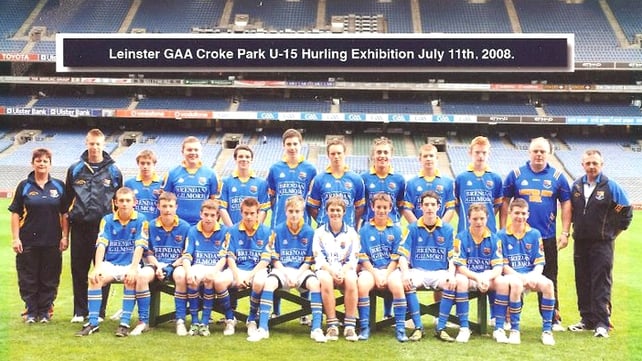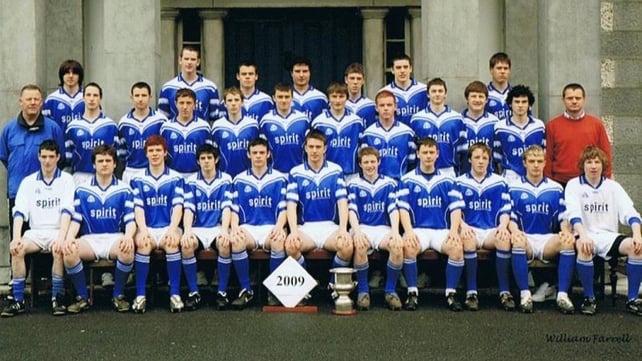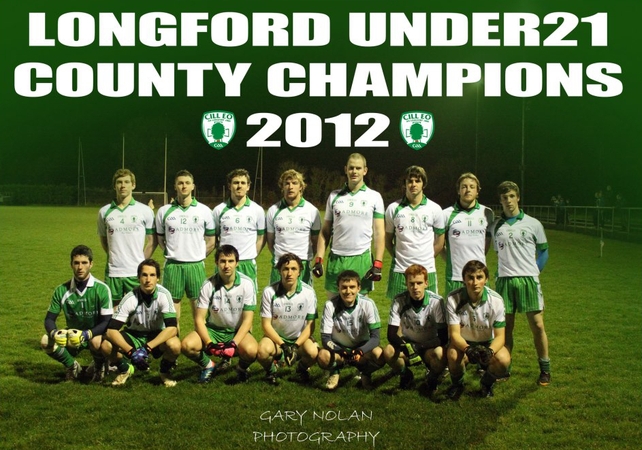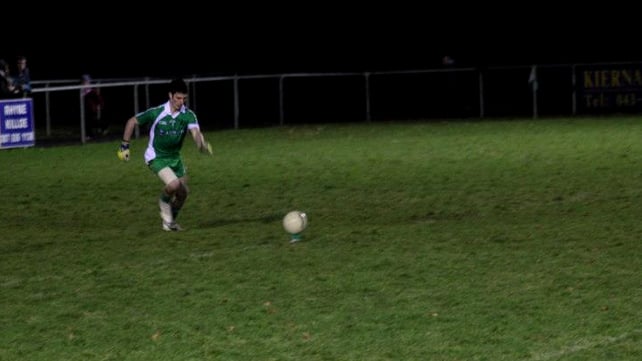In September 2007, Killoe juvenile Gaelic footballer Micheál Brady was heading to the dugout for water after a game when he suddenly began to stagger and then collapsed on the pitch.
Micheál had been born with a heart murmur, which lay dormant for several years but was routinely monitored for reassurance. But at the age of 15 the problem resurfaced, with devastating effect.
That same week, two other boys, Patrick Devlin (13) and Patrick Breen (10), both from Tyrone, died tragically after collapsing during GAA training. Fortunately, Micheál survived.
"Mammy had stopped coming to games, thinking I was going to collapse"
After being escorted to a dressing-room at Killoe's grounds in County Longford, Micheál sat on a bench while talk of defibrillators simmered nearby. An ambulance was summoned but Micheál’s father decided that he would prefer to drive his son to the hospital.
Micheál recalls his terror at that moment: “When my daddy lifted me up, it felt like I was entering a tunnel and a darkness was coming for me. In my head I was screaming but I don’t think they knew that and I was trying to wrestle with daddy to stop him going out the door.
“As we were leaving, the darkness just hit me and I dropped. Next thing I remember was daddy putting the seatbelt on me in the jeep.”
Micheál was transferred to Mullingar Hospital, where doctors advised him to take a two-year rest from sport and consider having a pacemaker installed.

For a boy who played hurling and football to inter-county standard and was also a talented soccer player, the prospect was unthinkable.
“It was just the worst news you could ever be told. How was I going to not play sport for two years?" he asked. "They told me I’d never kick a ball for my county again and said I might be able to get back to club, but at a very low level.”
A subsequent treadmill test identified that his heart rate was refusing to settle long after completing exercise. But despite this worrying news, Micheál’s only consideration was Killoe’s upcoming quarter-final.
“I still didn't want to lose my place,” he says, “and I knew we had a good chance of winning. It just wasn’t going to be the same if I wasn’t playing.”
Micheál played no part in that game and was forced to finish the season on the wrong side of the white lines, with just a consolatory five-minute cameo in the final of a victorious championship campaign.
He spent some time playing as a goalkeeper after that but yearned to be back in the thick of the action and persisted with training, despite the strain on his heart, in a bid to regain fitness and reclaim an outfield jersey.
Friends tried to reason with him and remind of those who didn't survive that fatal week in 2007, and, naturally, his actions were not well received at home.

“They weren’t happy,” he admits. “Mammy had stopped coming to games, thinking I was going to collapse. Daddy kept coming because if something did happen at least someone was there.’”
In his Leaving Cert year, a delighted Micheál was given the all clear. All thoughts about pacemakers were to be suspended until he turned 30 and he was back playing outfield again.
His perseverance appeared to have finally borne fruit until a migraine in school brought his progress to a dramatic halt.
Micheál recalls: “I was changing colours, everything was fuzzy and I needed to get sick. It felt like I had been shot in the temple and there was a burning pain from one ear to the other.’’
Back at Mullingar General Hospital, his heart rate plummeted to a dangerously low 17 beats per minute.
There was a swine flu outbreak at the time and, after his heart rhythm stabilised, doctors were keen to send Micheál home to protect him from infection. Micheál, however, refused and demanded that a blood test be carried out.
“I told them I wouldn't go home because I had a terrible pain in my chest. They said a blood test wouldn’t tell them anything new but when they came back with the results, they said that the Nurofen tablets I was taking had thickened my blood and it was barely getting through the arteries.
"They put me on aspirin then to thin it out and told me that I was very lucky I hadn't gone home.”

The parting advice was to refrain from sport, but the desire was still too strong and Micheál was lacing up his boots the following week to play for the school team.
He finished out the soccer season with a player of the year award, and was able to continue playing outfield for an entire season with the club U21s. Despite not winning any silverware, Micheál found solace in the fact that he could play on his own terms again.
"My friends have all gone on and won two county championships with the seniors and I feel I should be there"
“We had won two U21 titles before that when I was in goals but this meant so much more. And even though I was gutted when we lost, playing outfield is just such a different experience.”
Micheál confesses that he experienced up to 50 pains in his heart that he never disclosed to loved ones, fearing that it would a provoke an intervention. And with each passing emergency, doctors became increasingly irate with his uncooperative attitude to rest.
Now 23, Micheál has finally come to terms with his condition and stopped playing. Obeying the advice is difficult but he’s ready to accept that denying himself his heart’s desire to do what he loves, is the only way to protect himself.
“My friends have all gone on and won two county championships with the seniors and I feel I should be there,” he reveals.

“But I had to stop pushing it because it had come to the stage where every time I got a pain, my initial thought was ‘is this gonna be it, am I gonna get a pain one of these days that I won’t be able to get up from?’
“That chance is always there and it’s not fair on my family or my girlfriend. If I go back out, I could end up ruining everything that I have achieved.”


